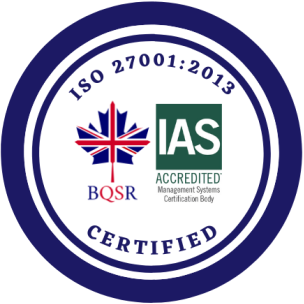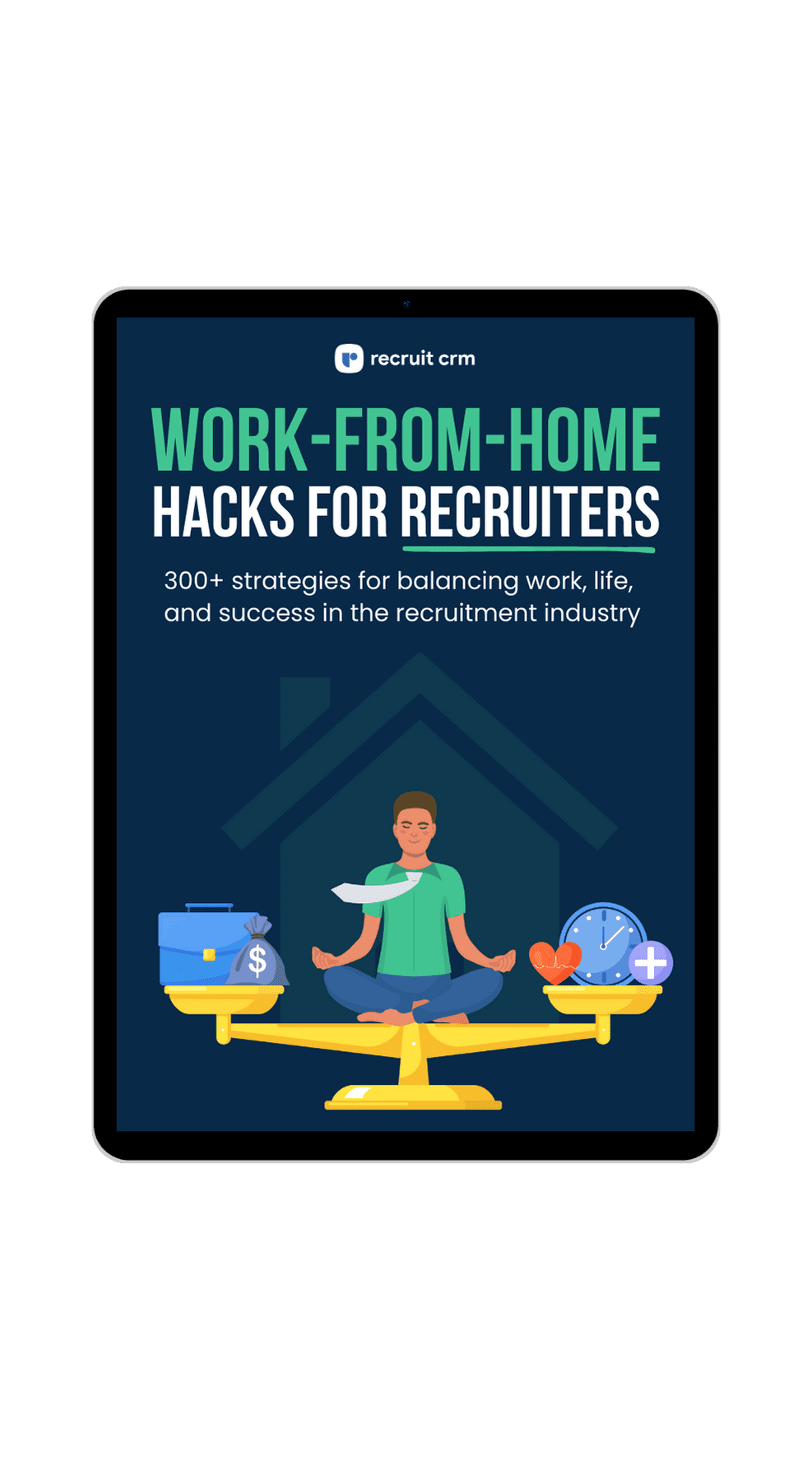In a world where people are going crazy about advanced AI tools, ever wondered how artificial intelligence can assist recruitment?
Will it help recruiters, or will it replace them in the future?
From key benefits and best practices to potential challenges and future trends, here’s everything you need to know about the AI revolution’s impact on the recruitment industry.
Let’s begin!
What is Artificial Intelligence (AI)?
AI technology is based on machine learning, where vast amounts of data are fed into the system, helping it to replicate our brain’s decision-making power.
The technology can improve itself daily by continuously learning from user interactions, enabling it to accomplish tedious tasks more efficiently.
An AI-powered recruitment software can assist organizations in managing large volumes of resumes, screening, shortlisting candidates, and conducting initial interviews.
Benefits of Using AI in the Recruitment Industry

1. Streamlines Recruitment Process
AI can automate several administrative tasks that are typically time-consuming and labor-intensive for recruiters.
This includes managing large volumes of resumes, sourcing candidates, and conducting virtual interviews.
Automating these frees up recruiters to focus on other strategic tasks and helps them deliver results efficiently.
AI tools help talent acquisition professionals analyze vast amounts of data. By offering data-driven insights, AI report generation holds immense potential to revolutionize recruitment and selection processes.
2. Improves Candidate Experience
An efficient recruitment process paired with human touch provides a great candidate experience.
With the help of AI-powered recruitment tools, recruiters can make the hiring process way more engaging, ultimately attracting a large pool of qualified candidates.
3. Provides Data-Driven Insights
With data analytical tools, recruiters can quickly eliminate guesswork and land the right candidates.
AI-powered recruiting apps can also provide insights that go beyond what humans can easily process, such as identifying key personality traits or attributes that lead to success in a particular role.
4. Bias-Free Recruitment
The intervention of human bias always implies a certain amount of threat to the quality of hires in an organization.
AI recruitment solutions can minimize this element by screening job applicants based on their qualifications and experience, eliminating subjectivity in the hiring process, and promoting diversity.
5. Sources New Talent Pools
AI-powered tools can help to analyze data from a wide range of sources, such as social media, job boards, and industry databases.
This helps recruiters identify potential candidates who might not have been discovered with traditional methods.
As a result, organizations end up expanding their search beyond the usual sources and finding candidates who might be a better fit.
Best Practices of Using AI in the Recruitment Process
1. Define Clear Objectives
Before implementing AI in recruitment, it is essential to clearly define objectives and decide what you expect out of the technology.
Point out specific areas you are willing to enhance with the help of automation. For example
- Candidate sourcing
- Reducing response times
- Adjusting hiring budgets
These will help to select the right AI recruiting software that aligns with your desired results.
2. Ensure Data Quality
The power of automation relies heavily on data quality.
Companies should ensure that the information they are dealing with is accurate and up-to-date. They should also cross-check the data sets upon which their AI tools are functioning as it largely impacts the quality of decisions taken.
Having access to authentic data helps the AI tools ensure that the algorithms are processing in a desired way and generating reliable results.
3. Eliminate Bias
Technology has its own set of unconscious biases that can majorly affect the course of recruitment in your organization.
To avoid any system bias, organizations should train their AI tools on diverse data and conduct regular audits to ensure that they are not discriminating based on factors such as race, gender, age, or ethnicity.
4. Use Natural Language Processing (NLP)
Natural Language Processing (NLP) is a technology that enables artificial intelligence to transform textual data into a format that a computer can understand.
By using NLP, AI hiring solutions can interpret job descriptions and CVs and match them based on skills, experience, and education required for an opening.
5. Leverage Chatbots
Chatbots can help your hiring team automate the initial stages of the recruitment process.
They can be used to answer basic candidate questions, screen resumes, and schedule interviews efficiently and effectively.
It can not only save some precious time for recruiters but also reduce the manual workload significantly. While chatbots are typically integrated with a B2C or B2B purchasing platform, they can also seamlessly connect with HR systems and streamline recruitment processes.
6. Personalize Candidate Experience
AI-driven tools can be used to personalize the candidate experience your organization offers.
Using candidate data, such as work history, education, skills, and background, AI can provide job recommendations customized according to the provided information.
It can even suggest job titles that the candidate may be interested in.
7. Monitor and Evaluate
To ensure that the technology is effective, organizations should monitor and evaluate the performance of their AI algorithms.
This will help identify any aspects needing improvement and ensure that the AI meets the recruitment objectives.
4 Potential Drawbacks of Using AI in Recruitment

1. AI Can’t Replace Humans
While AI tools can significantly reduce the workload for recruiters, they can never fully replace human efforts.
The power of intuition and personal interaction plays a massive role in the hiring process, which also evaluates a candidate’s personality, communication skills, and cultural fit.
2. Chatbots Struggle with Complexity
Chatbots can be a helpful tool for automating repetitive tasks such as scheduling interviews and answering basic questions, but they hit a roadblock in complex situations.
A bot will not respond to questions or nuances of human communication that go beyond the information it is trained on.
This is where human intervention is still required.
3. Potential Candidates May Be Overlooked
AI can be a powerful tool for sourcing and screening candidates, but it’s important to keep in mind that it may not identify all of the qualities and characteristics that a hiring manager would typically look for in a candidate.
This makes using AI in conjunction with traditional recruiting methods crucial, as a recruitment team cannot solely depend on a software to make all the decisions.
4. Data Privacy and Security Concerns
An AI tool is trained upon vast amounts of data, making it crucial for hiring managers to keep it secure.
This means ensuring that the organization should keep sensitive candidate data private and does not use it for discriminatory purposes.
It’s also important to be transparent with candidates and give them some degree of control over their personal information.
3 Best Use Cases of AI in Recruitment
1. Advertising for Jobs
Crafting and posting job adverts can be a time-consuming process.
AI tools can easily automate and schedule this task according to the organization’s needs.
These AI algorithms can also track the number of visitors to your career page and use that data to target specific candidates on social media for better results.
2. Screening CVs
During large recruitment drives, manually screening CVs becomes a real hassle.
Thankfully, AI recruitment tools can fully automate this task and help recruiters identify specific traits, experience, and skills to determine whether a candidate is a good fit or not.
3. Estimating Hiring Needs
Organizations need to stay prepared for unexpected employee turnovers.
Advanced AI tools can make predictions by studying patterns and employee data to help recruiters build a talent pipeline when required and ensure smooth operations.
6 AI Tools to Boost Your Recruitment

1. Recruit CRM- Highest-Rated!
Recruit CRM, the highest-rated ATS + CRM in the market not just comes with robust features that can help any recruiter streamline their day-to-day activities, but also with an AI-powered resume parser, that can convert any PDF or Word document to detailed candidate summaries.
It has the ability to parse –
- Non-English resumes
- Work & education history
- Email attachments
- Resumes from its Chrome extension
And much more! Interested to try out all the features?
Book a demo right away with one of their product specialists and they’ll show you around.
2. HireVue
Hirevue is an AI-powered video interviewing platform that uses machine learning to analyze candidates’ facial expressions, tone of voice, and word choice.
It also helps recruiters to attract or reject specific candidates making job posting more inclusive and effective.
3. Ideal
Ideal is an AI platform that uses predictive analysis to source, screen, and engage candidates.
This tool also comes in handy in automating repetitive tasks associated with recruiting, which frees up a lot of time for recruiters.
4. Entelo
Entelo is a talent acceleration platform that uses AI to source top candidates for a specific role.
It analyzes candidates’ profiles and social media handles to determine who is most likely to be a good fit for the organization.
It also provides recruiters with actionable insights so that they can work towards engaging suitable candidates effectively.
5. Maya
An AI-powered chatbot that helps recruiters automate many initial candidate interactions.
Maya can also screen resumes, answer questions, and schedule interviews without human intervention, thus saving time and improving the candidate experience.
6. Textio
Texito uses a language model which promotes inclusive hiring practices.
The recruitment tool uses AI to analyze job descriptions and provide suggestions to help recruiters write more inclusive and effective job postings.
It also helps remove unconscious biases and improve the language to attract a diverse workforce.
Future Trends and Predictions for AI in Recruitment
1. Integration with Other Technologies
AI will become more integrated with other HR technologies, such as applicant tracking systems and video interviewing, creating a more immersive and efficient recruiting experience.
For example, an AI-powered tool can source candidates much more efficiently, while video interviews will enable a smoother screening process.
2. Increased Use of Predictive Analytics
As AI improves itself at analyzing large amounts of data with time, predictive analytics will become more prevalent in the recruiting process.
For example, it can identify which candidates are most likely to accept a job offer or predict which candidates are most likely to succeed in a particular role.
3. Greater Emphasis on Diversity and Inclusion
As companies become more aware of the potential for AI to perpetuate biases, there will be a greater emphasis on ensuring that recruiting tools are designed to promote diversity and inclusion.
4. Personalization of Candidate Experience
AI can be used to provide a more personalized experience for candidates throughout the recruitment process.
AI can tailor job recommendations to candidates based on their skills and preferences or provide automated feedback on their application status.
This can help candidates feel more engaged in the recruitment process and increase their likelihood of accepting a job offer.
5. Increased Use of Chatbots
Chatbots, including AI voice tools, are AI-powered tools that can communicate with candidates in real time, providing information, answering questions, and guiding them through the recruitment process.
As AI technology improves, AI chatbots will become more sophisticated and better equipped to handle more complex situations.
Using chatbots in the recruitment process will simplify the hiring process by providing prompt support to candidates and allowing recruiters to concentrate on more complex tasks.
Key Takeaways

- AI-powered recruitment can automate many repetitive tasks, freeing recruiters to perform better.
- Bias-free recruitment is possible through AI-powered solutions; all you need to do is ensure the data you use is fair and accurate.
- With the help of AI, organizations can expand their search beyond regular sources and help identify candidates who may be a better match for the role.
- While AI tools can significantly reduce the workload for recruiters, they can never fully replace human efforts.
- AI isn’t a threat to your job; recruiters who know how to use AI to their advantage are.
With that being said, roll your sleeves up and join hands with this revolution to step up your hiring game.
Happy recruiting!




